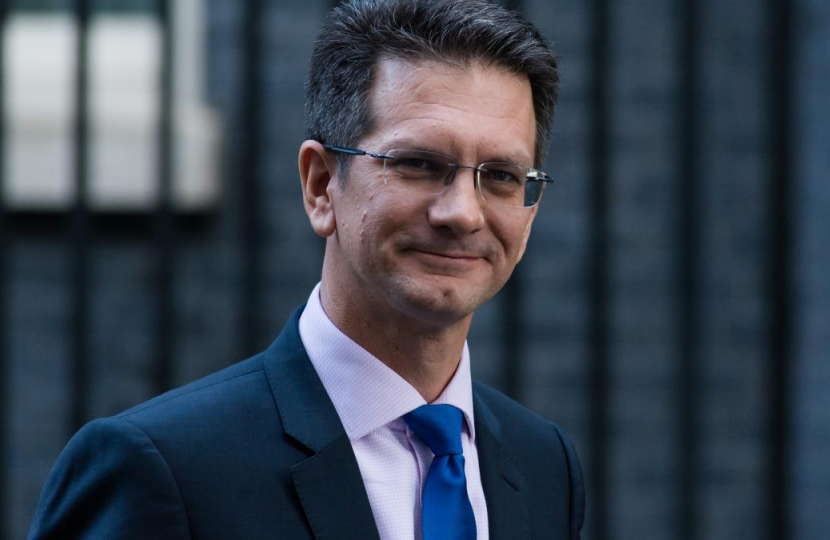
By Steve Baker MP | The Times
Throughout these extraordinary times, the people of the UK and the US have chosen to put their faith in the values and institutions that underpin the historic success of our democracies. As we go through seismic strategic changes in geopolitics and the economy, it is essential that we preserve the best of this legacy.
The UK has left behind the anti-competitive European Union and seeks to cooperate with trading partners on the basis that it’s not for us to dictate how others regulate, provided our overall goals are the same.
Light-touch, pro-competitive and welfare-enhancing regulations will support entrepreneurship in service of the public. We’re one of the few countries negotiating simultaneously with all key players; it is in the interests of the US to understand and respond to our new position.
It is certainly in our mutual interests to step up our trade policy and negotiations, to build on the Atlantic Charter, on Aukus and on our shared ideals for the Indo-Pacific. The UK leaving the EU is a major global event, one trading partners and stakeholders should take full advantage of.
Britain is liberalising growth areas of the future including data reform, gene editing, medicine and transport. We have also committed to devising and delivering the best border in the world by 2025 with a chain of UK freeports. These are intended to be linked on global trade superhighways to other similar zones all over the world.
In previous negotiations, America had been unwilling to negotiate on areas that would be priorities for the UK, such as financial services. There was considerable baggage with the EU both in terms of agricultural protectionism and their approach to regulation and standard setting. Outside the EU, the UK can now review standards, product regulation and our domestic agricultural regime; together we can develop world-class, WTO-compliant food standards. The recently concluded Australia deal commits the UK to zero tariffs and zero quotas over time in agriculture — something unthinkable in an EU context.
The recent comments made by Liz Truss, the foreign secretary, at Chatham House reflect the polarisation of the world into the free trading maritime democracies and the authoritarians in Russia, China and even parts of Europe.
A country’s trade policy is part of its foreign policy. Having chosen to base our regulatory systems on a different framework we now choose to work with other countries more like the US, as our soon to be Comprehensive and Progressive Agreement for Trans-Pacific Partnership (CPTPP) partners do: based on equivalence of regulations designed to achieve similar objectives without the same regulation.
The UK leaving the EU’s single market and customs union was a watershed moment. We must now liberalise regulations, cut bureaucracy, increase flexibility, and remove barriers. We must stand together to tackle unfair practices that threaten our citizens’ livelihoods, our businesses and erode trust in the global trading system — the many threats we face from the countries who believe in a state-led version of capitalism. Together, the UK and the US can act as a catalyst of greater trade liberalisation around the world, driven by just social processes, life, liberty and pursuit of happiness.
Alongside security, the prime minister said at the summit for democracies that trade and economic partnerships are central to strengthening democracy and standing up for our values. Trading superpowers also have a responsibility to practice free and fair trade to support the multilateral trading system. Our shared goals of peace and prosperity can be realised in the future as they were in the past by standing firm on our historic shared values.
The special relationship between the UK and the US must be nurtured; as we approach midterms, Republican members of congress will have willing partners in this project in Conservative MPs.
We find ourselves in an unfrozen moment of history in which people of shared values and goodwill can meet to break down regulatory barriers and negotiate around sanitary, phytosanitary and technical barriers to trade measures. Conservatives and Republicans can prepare the territory for a ground-breaking free trade agreement, which sets the standard for the world. The next Republican administration can then conclude that agreement swiftly.
I am delighted that Conservative Friends of America is rekindling these new relationships between our parties. Together we can engage with ambitious entrepreneurs on both sides of the Atlantic.
In the Henry Jackson Society’s 2019 audit of geopolitical capability the US and UK are first and second for soft power. This opportunity to work together to unleash the elements of a new standard of free and equitable trade is unparalleled. Lamentably, the present Democrat administration is neglecting this historic opportunity; it is paramount Republicans and Conservatives come together to prepare the ground for our future cooperation.
This is once again “a time for choosing” and we must choose to prioritise our unique relationship with the US.